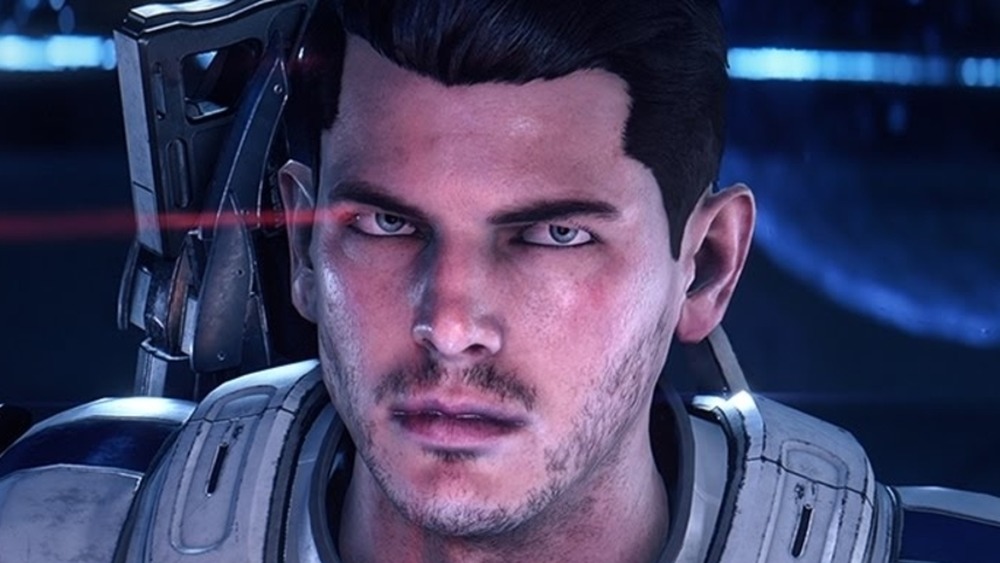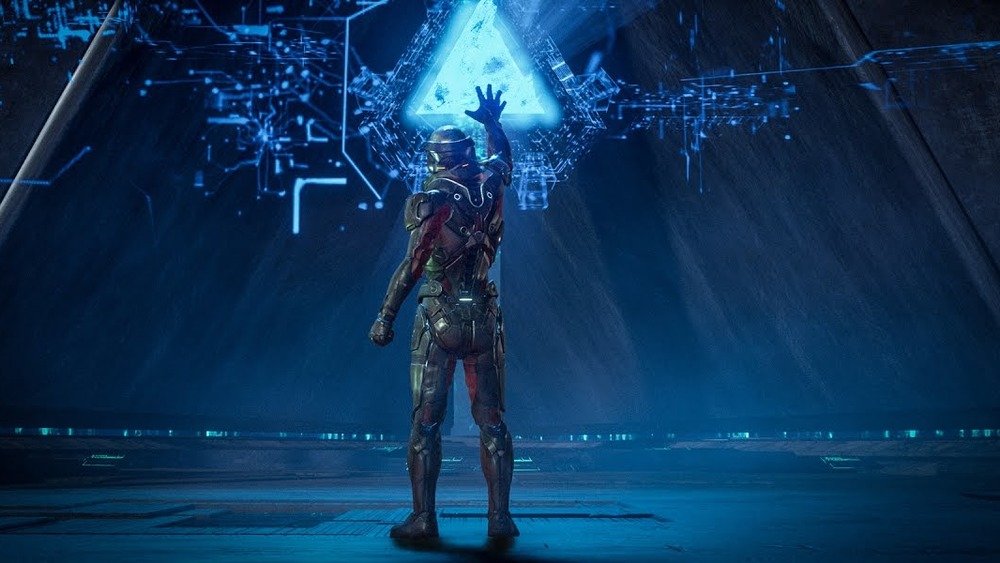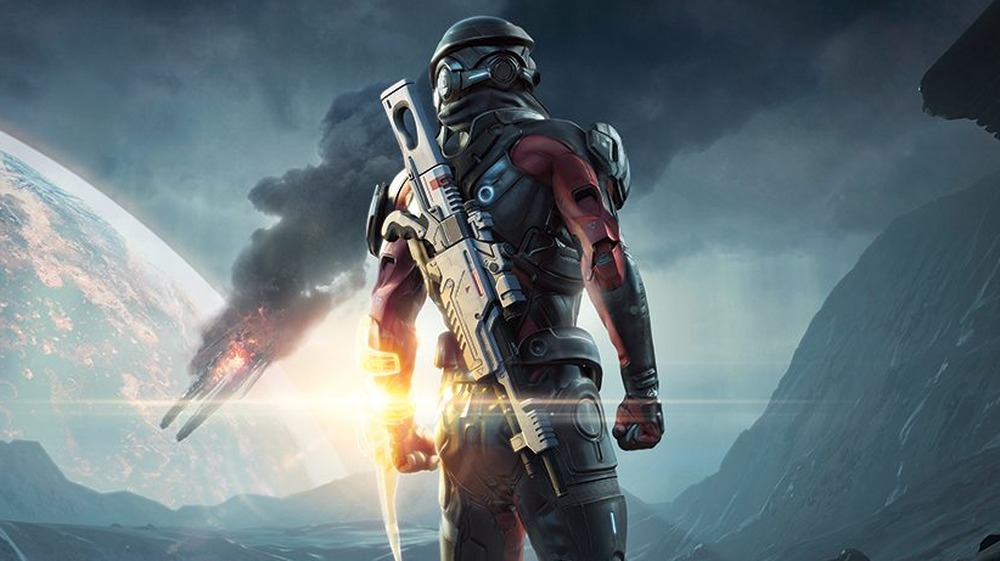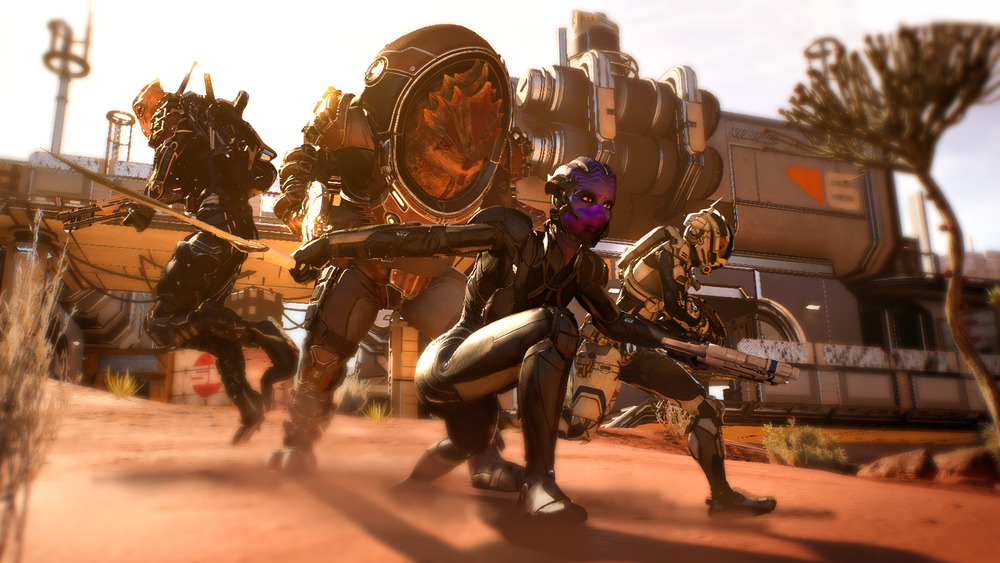What Went Wrong With Mass Effect: Andromeda
To many gamers, BioWare is one of the most respected developers of Western RPGs in the modern era of gaming. For the better part of two decades, the company produced successes in an unbroken line that ran from 1998's Baldur's Gate to 2014's Game of the Year, Dragon Age: Inquisition. In between those two were genre-defining titles like Star Wars: Knights of the Old Republic and the Mass Effect series.
Not every moment from 1998 until the mid-2010s was perfect for BioWare, however. There were stumbles, like 2011's Star Wars: The Old Republic's ballooning production costs and the controversy surrounding the ending of Mass Effect 3. However, even those missteps generally ended in a win for BioWare, with The Old Republic reportedly earning back its costs and further DLC walking back some of the player frustration with Mass Effect 3.
Of course, every winning streak ends eventually, as it did for BioWare in 2017 with Mass Effect: Andromeda. The feeling that it was the end of an era was only compounded when, two years later, Anthem landed with a similar lack of enthusiasm. How did a studio like BioWare go from the top to the middle, seemingly? Let's take a look at what went wrong with Mass Effect: Andromeda to find out.
Studio changes start Mass Effect: Andromeda off in an unclear trajectory
When BioWare began working on a new Mass Effect game in 2012, the company wanted a fresh start. Instead of just revisiting what had worked with the previous trilogy, the goal was to experience new settings and threats within the Mass Effect universe. BioWare decided early on to focus on finding a way to let players explore a whole galaxy rather than a handful of planets, according to Kotaku.
Another part of that fresh start were staff changes. Casey Hudson, executive producer for all three previous Mass Effect games, and his team at Edmonton began working on what would become Anthem. BioWare Montreal, founded in 2009 to create Mass Effect DLC, would develop Mass Effect: Andromeda.
As the game entered preproduction in 2013, BioWare hired Gérard Lehiany to serve as project director. Lehiany entered the studio to serve as the narrative lead and brought high concept ideas to the new Mass Effect project. The most ambitious of these was creating a game that wouldn't have a handful of worlds — it would have hundreds of procedurally generated planets, each distinct but held to the standards of BioWare graphics, story, and world-building.
Mass Effect: Andromeda suffered from Frostbite
Through 2013 and 2014, Mass Effect: Andromeda went through a long preproduction period, during which the designers built prototypes to see if concepts like high quality procedurally generated worlds could even work. However, the project was consistently held back by understaffing and technology issues.
One of the biggest obstacles was parent company EA's insistence that all of its developers use the same base technology, the Frostbite engine. That engine was developed by DICE, which created it for the Battlefield franchise. One developer at BioWare, according to Kotaku, described Frostbite as "a sports car. Not even a sports car, a Formula 1. When it does something well, it does it extremely well. When it doesn't do something, it really doesn't do something."
One of the things it does well, for example, is vehicles. One of the things it did poorly was generating large maps, which Mass Effect: Andromeda needed for its expansive settings and procedurally generated worlds. It also didn't do a great job of accommodating the action RPG features, or even save functions, that Andromeda had to have. Frostbite's restrictions were so deeply rooted that they similarly impacted Anthem's development in the following years.
Geographic dispersion resulted in a disjointed development
By the time Mass Effect: Andromeda went into full production, BioWare had offices across three cities: Montreal, Edmonton, and Austin. Much like EA had its one engine policy for Frostbite, BioWare had adopted a "One BioWare" initiative. Crucial projects like Mass Effect: Andromeda were contributed to by team members from all three locations.
While global studios like Ubisoft have proven that this model can work, those companies employ experienced production teams to coordinate international efforts. BioWare didn't have that level of expertise when developing Mass Effect: Andromeda, according to Kotaku. Even trying to coordinate videoconferencing between the three locations was costing the team time. Cross studio politics between locations became toxic. The developers at the BioWare's flagship Edmonton studio described Montreal as floundering, and Montreal accused Edmontons of stealing concepts and staff members for Anthem and Dragon Age: Inquisition.
More than a dozen people left BioWare Montreal in 2014, and the positions vacated were not always filled, leaving even more crucial staffing shortages. Casey Hudson, the driving force behind the first three Mass Effect titles and lead on Anthem, abruptly left the company in August of 2014. Gérard Lehiany left soon after, and by the end of the year, Andromeda was rudderless.
Extended crunch leads to a poorly executed final result
After losing key leaders, the Mass Effect team tried to regroup. Longtime Mass Effect writer Mac Walters, based in Edmonton, became the project's creative director and began a massive rescope.
It became clear that little of what had been done so far was usable, and so Walters was forced to abandon key concepts. The number of worlds was reduced from hundreds to thirty, then to seven. Lehiany's narrative was reimagined, and work on a new project began. Kotaku reported that "the bulk of the game was developed during that final stretch, from the end of 2015 to March 2017." Those 18 months were essentially an extended period of crunch, or "finaling mode," that seemed to reveal more problems with the game than it solved. Instead of polishing up and perfecting the code that was already there, every step forward uncovered weaknesses that needed resolutions that sometimes never came.
The result was a catastrophe. While BioWare and EA hoped the game would find a forgiving public, they did not. The game received BioWare's lowest Metacritic ratings to date, BioWare Montreal closed, and the Mass Effect series was shelved for years until rumors of a revival began circulating in 2019.





